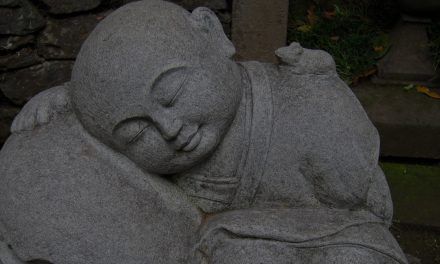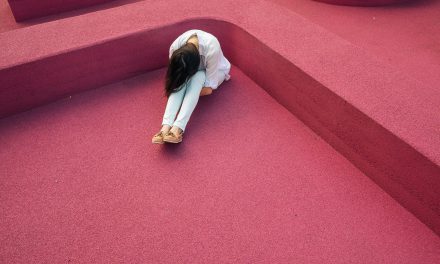Science, Yoga, and The Aging Body: What Postures, What Practices?
This post is part of an ongoing public discussion relating to the scientific research of yoga and follows a two-part online webinar, Scientific Research on the Elderly and Yoga, which can be found on our events archive here. Comments are welcome in the comment field provided below this post. All comments are moderated for content and may or may not be published.
Scientific research shows that yoga affects the aging process.
During COVID, we’ve all thought about our elders: how to care for them, how to protect them, and, as yoga teachers and practitioners, how we might even use yoga as a way to ameliorate or improve their experience of life in lockdown. In April, as the pandemic began, I met with Yoga Alliance’s Director of Yoga Research and Assistant Professor of Medicine at Harvard Medical School Dr. Sat Bir Singh Khalsa to talk about these issues in a two-part CE Webinar series called “The Elderly and Yoga.” Dr. Khalsa presented scientific publications on yoga and aging: Part 1 covered musculoskeletal and cognitive decline, and in Part 2 addressed anxiety and depression in the aging population, a particularly relevant topic during COVID.
Dr. Khalsa talked about the common challenges and consequences that accompany the aging process. Aging is associated with:
- Diminution in most psychological and physical aspects of our functioning
- Decline in brain function and structure, adding risk to cognitive decline, memory deterioration, depression, and anxiety
- Bone shrinkage in size and density, leading to the risk of fracture
- Loss of muscle strength, endurance, and flexibility, adding to a risk to balance issues, leading to falls (which increases the risk of fracture)
- Stiffening blood vessels/arteries, increaseing the risk of hypertension and cardiovascular diseases
- Reduced immune function, heightening the risk for infectious diseases (such as COVID-19)
- Weakened sleep integrity, increasing the risk for sleep disturbance and insomnia
- Structural changes in intestines, bladder and prostate, adding to risk for constipation, weak and/or frequent urination, and incontinence
- A host of challenges including declines in vision, hearing, skin integrity, sexual health, and metabolism
Those over 65 don’t generally just jump into an average yoga class.
Aging people typically benefit from modified yoga classes tailored to their abilities and limitations, but they may be reticent to try. Dr. Khalsa observed that the mainstream public perception of those who practice yoga does not include people 65 and older. Referencing a peer-reviewed study published by several of his colleagues in which 168 covers of Yoga Journal were analyzed from 1975–2015, Dr. Khalsa said that most people think of yoga as a practice for young-to-middle-aged, White, thin, and flexible women. Anyone with physical limitations, which aging almost always brings, are challenged to consider yoga a practice as beneficial for or relevant to them.
Considering how to introduce yoga to this group, the question of what’s the right challenge and how to create comfort are then things to keep in mind. Scientific research has accounted for the imbalance between the perception of yoga overall and its relevance for the aging population by studying mostly modified yoga practices. All studies we see for this group involve basic, gentle movements, with chair yoga, for example, featured in a recent pilot randomized control trial study on those with osteoarthritis. Chair yoga has so far been the most studied modification.
We also see that in older adults practicing yoga, particularly those who have been practicing yoga a while, all aspects of sleep improved. One study even found that disrupted sleep in elderly yoga practitioners wasn’t prevalent enough to be an issue: “Sleep disturbance was unrelated to age, and fatigue levels significantly decreased with age,” the study concluded.
Three citation highlights
In a study published by the International Journal of Behavioral Nutrition and Physical Activity, researchers found “robust evidence for promoting yoga in physical activity guidelines for older adults as a multimodal activity that improves aspects of fitness like strength, balance and flexibility, as well as mental wellbeing.” They determined that multiple physical functions and health-related quality of life outcomes improved in this population compared to both control conditions in the study.
A research article by The Gerontological Society of America, “Yoga Is as Good as Stretching—Strengthening Exercises in Improving Functional Fitness Outcomes: Results From a Randomized Controlled Trial”, measures hatha yoga against conventional CDC stretching guidelines for improving functional fitness outcomes and found that the “gentle and modifiable nature of practically all Hatha yoga” makes it “easy to adopt and maintain in older adults.”
Research Citations
Overall
- Psychoneuroimmunology-developments in stress research, Straub RH, Cutolo M, Wiener Medizinische Wochenschrift, 2018
- Yoga Therapy in Practice: The Psychological Benefits of Yoga Practice for Older Adults: Evidence and Guidelines, Kimberly Bethany Bonura, 2011
Depression and anxiety
- Evidence based effects of yoga practice on various health related problems of elderly people: A Review, A Mooventhan, L. Nivethitha, 2017
- Yoga-based exercise improves health-related quality of life and mental well-being in older people: a systematic review of randomised controlled trials, Tulloch, 2018
Stress
- Yoga stretching for improving salivary immune function and mental stress in middle-aged and older adults, Eda N, Ito H, Shimizu K, Suzuki S, Lee E, Akama T., 2018
- Yoga reduces perceived stress and exhaustion levels in healthy elderly individuals, Lindahl E, Tilton K, Eickholt N, Ferguson-Stegall L., 2016.
Sleep Disturbance, including in long term yoga practitioners
- Why sleep is Important for Health: a Psychoneuroimmunology Perspective, Michael R. Irwin, 2015
- Impact of long term Yoga practice on sleep quality and quality of life in the elderly, Mangesh A. Bankar, Sarika K. Chaudhari, Kiran D. Chaudhari, 2012
- National Survey of Yoga Practitioners: Mental and Physical Health Benefits, Alyson Ross, Erika Friedmann, Margaret Bevans, and Sue Thomas, 2013
- Influence of Yoga & Ayurveda on self-rated sleep in a geriatric population, N.K. Manjunath & Shirley Telles
- Effects of Yoga on Sleep Quality and Depression in Elders in Assisted Living Facilities, Kuei-Min Chen & Ming-Hsien Chen & Mei-Hui Lin & Jue-Ting Fan Huey-Shyan Lin & Chun-Huw Li, 2010
Immune Function
- Yoga stretching for improving salivary immune function and mental stress in middle-aged and older adults, Eda N, Ito H, Shimizu K, Suzuki S, Lee E, Akama T., 2018
Strength, Balance, Flexibility
- Yoga-based exercise improves balance and mobility in people aged 60 and over: a systematic review and meta-analysis, Sabrina Youkhana, Catherine M. Dean, Moa Wolff, Catherine Sherrington, Anne Tiedemann, 2015
- The effects of yoga compared to active and inactive controls on physical function and health related quality of life in older adults- systematic review and meta-analysis of randomised controlled trials, Divya Sivaramakrishnan, Claire Fitzsimons, Paul Kelly, Kim Ludwig, Nanette Mutrie, David H. Saunders and Graham Baker, 2019
- Yoga Is as Good as Stretching–Strengthening Exercises in Improving Functional Fitness Outcomes: Results From a Randomized Controlled Trial, Neha P. Gothe and Edward McAuley, 2015
- Comparative impacts of Tai Chi, balance training, and a specially-designed yoga program on balance in older fallers, Meng Ni, Kiersten Mooney, Luca Richards, Anoop Balachandran, Mingwei Sun, Kysha Harriell, Melanie Potiaumpai, Joseph F Signorile, 2014
- A Pilot Randomized Controlled Trial of the Effects of Chair Yoga on Pain and Physical Function Among Community-Dwelling Older Adults With Lower Extremity Osteoarthritis, Juyoung Park, Ruth McCaffrey, David Newman, Patricia Liehr, and Joseph G. Ouslander, 2017
- Electromyographic Pattern during Gait Initiation Differentiates YogaPractitioners among Physically Active Older Subjects, Thierry Lelard, Pierre-Louis Doutrellot, Abdou Temfemo and Said Ahmaid, 2017
Mood and cognitive disorders, including memory
- Mind-Body Therapies for Late-Life Mental and Cognitive Health, Kelsey T. Laird & Pattharee Paholpak1, & Michael Roman & Berna Rahi & Helen Lavretsky, 2018
- The Effects of Mind-Body Exercise on Cognitive Performance in Elderly: A Systematic Review and Meta-Analysis, Yanjie Zhang, Chunxiao Li , Liye Zou, Xiaolei Liu and Wook Song, 2018
- Fluid intelligence and brain functional organization in aging yoga and meditation practitioners, Tim Gard, Maxime Taquet, Rohan Dixit, Britta K. Hölzel, Yves-AlexandredeMontjoye, Narayan Brach, David H.Salat, Bradford C. Dickerson, Jeremy R. Gray and Sara W. Lazar, 2014
- Greater Anteroposterior Default Mode Network Functional Connectivity in Long-Term Elderly Yoga Practitioners, Danilo Forghieri Santaella, Joana Bisol Balardin, Rui Ferreira Afonso, Giuliana Martinatti Giorjiani, João Ricardo Sato, Shirley Silva Lacerda, Edson Amaro Jr., Sara Lazar and Elisa H. Kozasa, 2019
- Changes in Neural Connectivity and Memory Following a Yoga Intervention for Older Adults: A Pilot Study, Harris A. Eyrea, Bianca Acevedo, Hongyu Yang, Prabha Siddarth, Kathleen Van Dyk, Linda Ercoli, Amber M. Leaver, Natalie St. Cyr, Katherine Narr, Bernhard T. Baune, Dharma S. Khalsa and Helen Lavretsky, 2019
- Hatha Yoga Practice Improves Attention and Processing Speed in Older Adults: Results from an 8-Week Randomized Control Trial, Neha P. Gothe, Arthur F Kramer and Edward McAuley, 2016

About the Author
Kim Weeks
Certified Iyengar Yoga Teacher and wellness expert, and founder of a wellness consulting and education company called Weeks Well, whose mission is to foster transformation in work and life.
Videos Associated With This Article
Yoga and Aging
This video from Yoga Alliance describes the process of aging, the aspects of yoga that slow down the aging process, and what types of yoga have been studied with respect to aging and the elderly.
CE Workshop | Scientific Research on the Elderly and Yoga, Part 1
Explore how yoga affects (and even slows down) the aging process. This discussion includes information on studies involving yoga and the elderly and outlines the process of aging.
We welcome your thoughts.
We invite you to share your questions or insights in the comment field below. To ensure quality of conversations on our blog, all submitted comments are held in queue for moderation and review. We’ll do our best to publish your comments as quickly as possible.
Comment Guidelines.
![]() Keep comments concise and on-topic.
Keep comments concise and on-topic.![]() Be courteous.
Be courteous.![]() Review before posting.
Review before posting.![]() Provide references or links to documentation.
Provide references or links to documentation.![]() Avoid serial comments.
Avoid serial comments.







